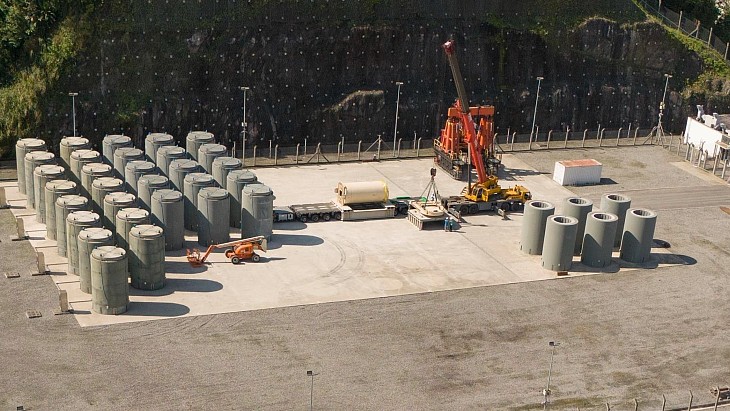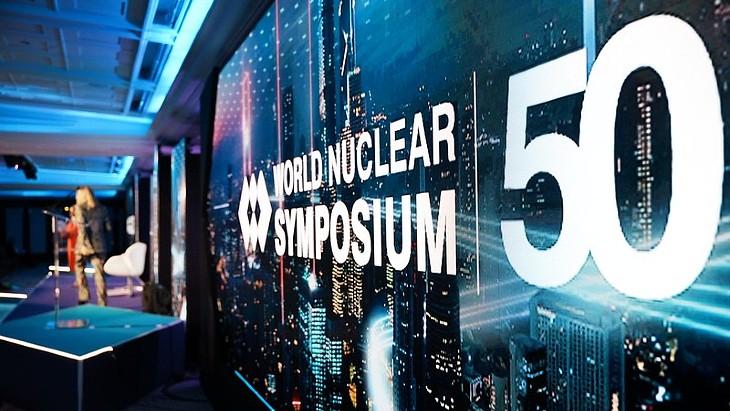The laboratory - in the Gobi Desert - will be used to test the suitability of the area for the long-term storage of high-level radioactive waste. It will eventually comprise a spiral ramp, three vertical shafts and horizontal disposal galleries. Two nuclear technology test platforms are to be built at a depth of 280 metres and 560 metres, respectively.
A ground-breaking ceremony was held at the Beishan site in June 2021. The world's first "large-slope spiral tunnel hard rock tunnel boring machine" - known as Beishan No.1 - began drilling the laboratory's underground ramp on 18 November last year.
"As one of the two access passages of the Beishan underground laboratory, the excavation depth of the personnel shaft reached -280 metres, marking the project reached the first test level depth," CNNC said.
.jpg)
The Beishan laboratory will comprise a spiral ramp, three vertical shafts and horizontal disposal galleries (Image: CAEA)
The laboratory was one of 100 major scientific construction projects listed in China's 13th Five-Year Plan, covering 2016-2020. In 2019, the project was approved by the China Atomic Energy Authority, with CNNC's Beijing Institute of Geology of the Nuclear Industry designated as the leader of the project.
The laboratory's surface facilities will cover 247 hectares, with 2.39 hectares of gross floor space. The underground complex will have a total structural volume of 514,200 square cubic metres, along with 13.4 kilometres of tunnels.
"This will be the world's largest underground laboratory with the most complete functions and the widest participation scope," CNNC said. "It will provide an important scientific research platform for the construction of a deep geological repository for high-level radioactive waste, to speed up the process of safe disposal of high-level radioactive waste, and to ensure the healthy and sustainable development of the nuclear industry".
The laboratory is estimated to cost over CNY2.72 billion (USD395 million) and take seven years to build. It is designed to operate for 50 years, and if its research proves successful and the site is suitable, an underground repository for high-level waste will be built near the laboratory by 2050.
Industrial-scale disposal of low and intermediate-level waste is carried out at three sites in China: near Yumen, northwest Gansu province; at the Beilong repository in Guangdong province near the Daya Bay nuclear plant; and at Feifengshan, Sichuan province.

.jpg)



_58913.jpg)
_35510.jpg)
_93097.jpg)





